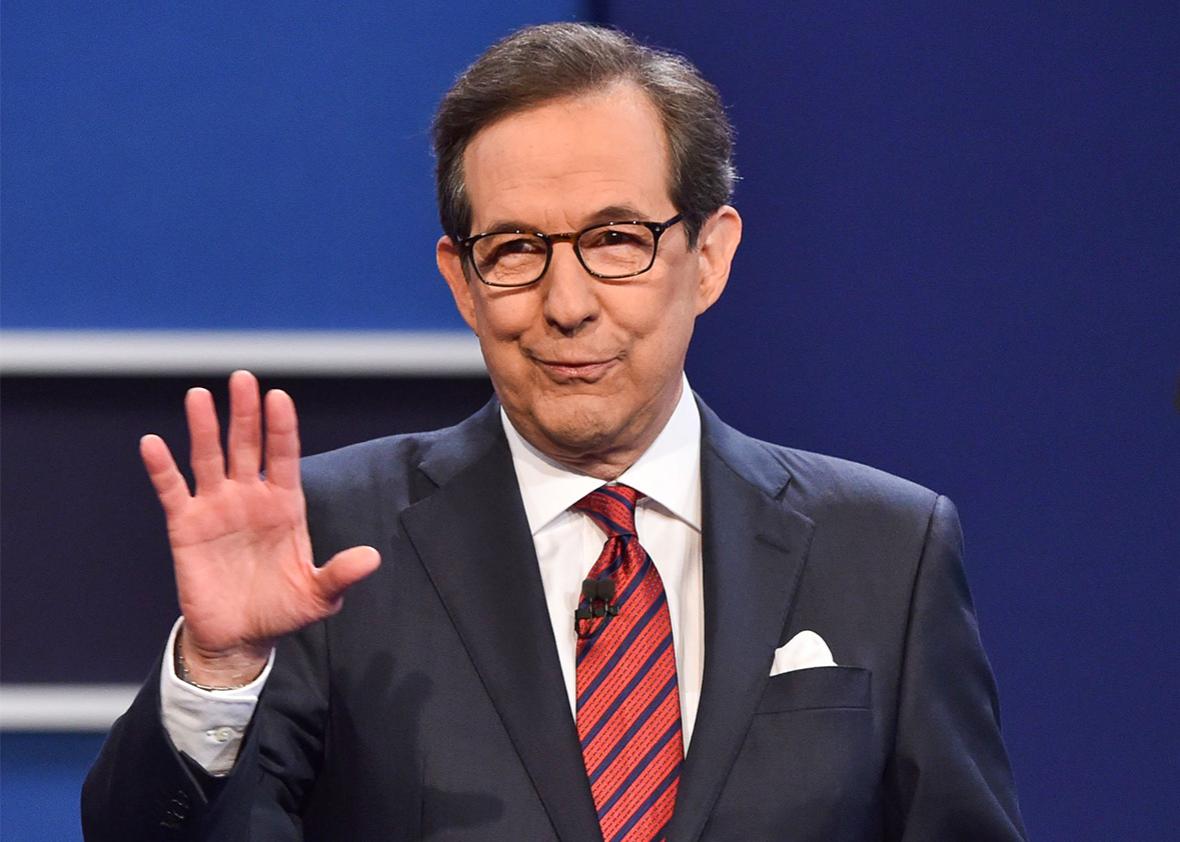The fact that Wednesday night’s presidential face-off in Las Vegas was the most—indeed the only—watchable 90 minute debate of the general election was due in part to Hillary Clinton’s steady performance, and also in part to Donald Trump’s (comparatively) less grotesque onstage behavior. But it was also due to Chris Wallace’s controlling, imperfect, but ultimately successful moderating job.
Fox News has somehow reached a level of normalization that its anchors are allowed to host presidential debates. Wallace generally did a fine job not proving that decision by the Commission on Presidential Debates wrong. He kept the conversation substantive. Not all of his questions were well-phrased, and at times it seemed that he felt the burden to treat the candidates as equals when one is an extremely dangerous neo-fascist and the other is not. But his penchant for interrupting and steering the dialogue generally worked well.
The division of this debate into clearly delineated topics—all of them chosen by Wallace—paid clear benefits. This was a real policy debate, or as much of a policy debate as you can have with Donald Trump. The first subject was the Supreme Court, and Wallace pushed both Trump and Clinton on their abortion positions, and whether the Constitution should be interpreted as a living document.* When the subject was the right to bear arms, Wallace didn’t make sure Trump knew what D.C. v. Heller, the case he name-dropped several times, actually was. But Wallace accomplished his job as a moderator here: making clear to voters that the two candidates have distinct opinions, so that the voters can cast their ballots accordingly.
There were some low points: namely, the sections on the economy and immigration, the latter of which he opened by making a flatly incorrect claim that Clinton doesn’t have an immigration plan. As usual, he totally ignored climate change. (Lester Holt, Anderson Cooper, and Martha Raddatz ignored it, too.) But Wallace got tougher and better as the debate went on; his questions got clearer and his interruptions more well-timed. His approach on Trump’s alleged groping of numerous women was slightly ill-phrased—he asked why the women were coming forward now, seeming to give some credence to Trump’s conspiracy theory that perhaps women were speaking up because of a grand Clinton scheme. (Generally speaking, Wallace would have done well to prod Trump more on his conspiracy theories; he didn’t have to call him a liar, he could have just asked him for evidence.) When Trump changed the subject to Clinton’s ethics, Wallace not only asked pointed questions about the Clinton Foundation; he also pushed Trump, who attacked the foundation, for his own, even more ridiculous outfit: the Donald J. Trump Foundation.
The foreign policy section was also surprisingly revealing. Wallace asked a very direct question about Trump’s confusion over the status of Aleppo, and asked even better questions about the coming battle for Mosul and the possibility of a no-fly zone in Syria.
Wallace’s best moment was on the subject that is sure to dominate the conversation this week, and in fact until the election: the question of whether the election is rigged. He pushed Trump several times on his extraordinary claims, and placed them within the context of America’s democratic traditions. He got across to the viewer exactly how monumental this issue was, and why Trump’s remarks last week and Wednesday night—essentially that he very well might not respect the result—were so dangerous. Perhaps it was Wallace’s small attempt to pay back a debt that he and his network have incurred: namely, peddling conspiracy theories and undermining any shred of confidence American conservatives may have once had in government. Wallace cannot atone for all of his network’s sins, but he does deserve credit for allowing viewers to witness the best debate of the cycle. In this election year, even small gifts suffice.
*Correction, Oct. 20, 2016: This post originally misstated what should be interpreted as a living document. It is whether the Constitution, not the Supreme Court, should be interpreted as a living document. (Return.)
